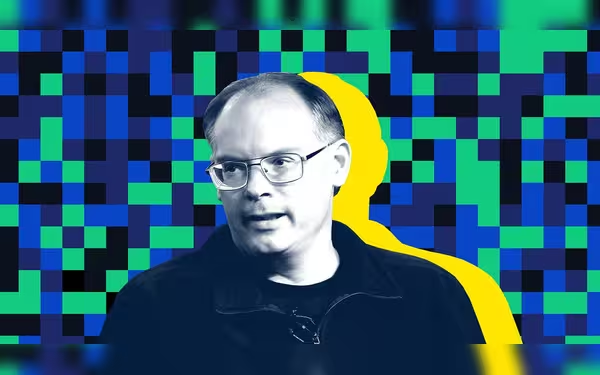Saturday, November 16, 2024 07:33 PM
Epic Games Plans Transformative Decade Ahead
- Epic Games aims for financial sustainability and innovation.
- Collaboration with Disney to create a persistent universe.
- Launch of Fab marketplace for digital asset interoperability.
 Image Credits: gnnhd
Image Credits: gnnhdEpic Games outlines ambitious plans for the future, focusing on financial sustainability, innovative technology, and collaboration in the gaming industry.
Epic Games, the renowned video game and software developer, has recently made headlines with its ambitious plans for the future. Just over a year ago, the company faced significant challenges, including laying off around 16 percent of its workforce. The CEO, Tim Sweeney, explained that the company was spending much more than it was earning, stating, "For a while now, we’ve been spending way more money than we earn." However, during the recent Unreal Fest conference in Seattle, Sweeney announced that Epic is now "financially sound," marking a significant turnaround for the company.
During the two-hour keynote, Sweeney provided updates on various projects, including Unreal Engine, the Unreal Editor for Fortnite, and the Epic Games Store. He revealed that the company had managed to rein in its spending, which was previously about a billion dollars a year more than its earnings. Now, Sweeney noted, "we’re spending a bit more than we’re making," indicating a more sustainable financial approach.
Epic Games has set its sights on ambitious goals for the coming years. The company is working on a new version of Unreal Engine that aims to merge high-end game development tools with user-friendly features. Sweeney emphasized, "The real power will come when we bring these two worlds together," highlighting the potential of Unreal Engine 6. This new engine is designed to allow developers to create applications that can be deployed as standalone games across various platforms.
One of the exciting projects Epic is developing is a "persistent universe" in collaboration with Disney. Sweeney explained, "We announced that we’re working with Disney to build a Disney ecosystem that’s theirs, but it fully interoperates with the Fortnite ecosystem." This initiative aims to create a seamless experience for users, allowing them to navigate between different digital worlds.
Moreover, Epic is launching a marketplace called Fab, which will host digital assets compatible with various games like Minecraft and Roblox. Sweeney described the vision for Fab, stating, "Having seamless movement of content from place to place is going to be one of the critical things that makes the metaverse work without duplication." This marketplace will enable creators to offer assets in multiple formats, enhancing the interoperability of digital content.
However, for a truly interconnected metaverse to become a reality, collaboration among companies like Epic, Roblox, and Microsoft is essential. Sweeney acknowledged that discussions about interoperability are still in the early stages, stating, "But we will, over time." He envisions a future where companies work together, using revenue sharing to create engaging digital experiences that players will want to invest in.
Epic's vision for the future is not just about creating games; it is about building a vibrant ecosystem where players can enjoy seamless experiences across different platforms. As Sweeney pointed out, "The whole thesis here is that players are gravitating towards games which they can play together with all their friends." This insight reflects a growing trend in the gaming industry, where social interaction and community engagement are becoming increasingly important.
Epic Games is positioning itself for a transformative decade ahead. With its focus on financial sustainability, innovative technology, and collaborative ecosystems, the company is set to redefine the gaming landscape. As players continue to seek immersive and interconnected experiences, Epic's ambitious plans may very well shape the future of gaming as we know it. The journey ahead promises to be exciting, and it will be fascinating to see how these developments unfold in the coming years.













